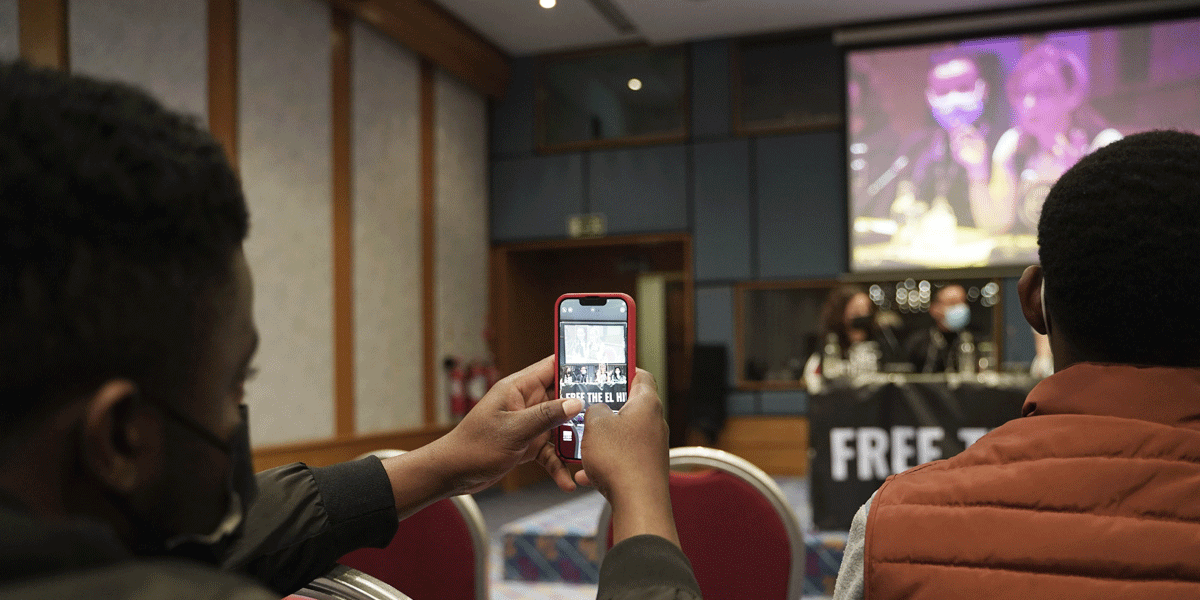


Do the right thing: Drop the charges against the El Hiblu 3
Maria Pisani
Founder of Integra Foundation
It has now been three years since the Government of Malta pressed charges against Abdalla, Amara and Kader. The consequences of the accusations brought against the three young men are devastating: their imprisonment, the drawn-out legal process, the prospect of years in court, the stigma associated with such accusations, and the fear of life imprisonment all amount to cruelty. Three long years of uncertainty and fear reach into the future with no end in sight, a living nightmare from which there seems to be no reprieve. The El Hiblu 3, as they came to be known, might as well still be adrift in the Mediterranean, or lying in their prison cell, for they remain shackled for a crime that they did not commit. The waiting is devastating, destructive and frightening.
Three years have passed since Abdalla, Amara and Kader fled the shores of war-torn Libya in the hope of reaching security, a safe destination and an opportunity to pursue the kind of dreams any teenager hopes for. Their aspirations suggest nothing out of the ordinary: to pursue an education, play football, find peace of mind, and make their families proud.
Over the past two decades, the headlines in Malta have been dominated by the stories of asylum seekers fleeing the coast of Libya in an attempt to reach safety and protection in Europe. The complexities of this context go beyond the scope of this article, but the events that ensued on the decks of the El Hiblu 1 must be framed within the broader context of political theatre, and the menace of border politics within the Mediterranean and EU context. Malta, as the smallest Member State, wields little political power within the broader EU context and the script provides little opportunity to protect what is perceived as the nation’s best interests. The issue of asylum seekers has been positioned within a political narrative that insists that Malta is too small to cope with the number of arrivals and that other EU Member States must do more in the way of ‘burden sharing’. The Government of Malta has resorted to secret deals with the Libyan government, illegal pushbacks and unlawful detention at sea and on land in their efforts to prevent arrivals and to assert political power on the international stage. On a national level, two decades of racialisation and criminalising discourse have successfully generated enough fear in the minds of the general public to apparently justify inhumane and illegal reception policies and social exclusion. Unbeknown to the three teenagers then, the events that unfolded on the decks of the El Hiblu 1 were not occurring in a vacuum, but were part of a far more complex political game of chess, in which they were subsequently positioned as pawns.
As they translated for the captain and the other passengers, the three teenagers entered a broader political context – a context marked by tension, political bluster and abuse of power, violence, human rights violations and deaths, with little end in sight. Punishing refugees has become normalised, a collateral damage of border politics.
A law that was written to protect the nation-state is being used to terrorise three individuals. These are spectacular accusations that represent no less than public acts of cruelty against three young men, two of them who were still minors when they arrived in Malta. The charges brought against the three young men are unnecessary. They cannot be justified.
The lives of Abdalla, Amara and Kader must be put first. There can be no space for negotiation or justification for such acts of cruelty, especially when they involve a minor. It is not right, and it is not fair.
When Amara was first placed in prison, he recalls not feeling afraid. He believed that what was happening was simply a result of a misunderstanding, how could it not be? His innocence, reflected in his young age, allowed him to believe – to really have faith – in human understanding and decency. I believe it was this same virtue, coupled with immense courage, that spurred the three teenagers to mediate between the crew and the other passengers. The painful paradox is that it is this very act of courage, a noble quality in and of itself, that has exposed them to new dangers, that made them more vulnerable to cruelty. Three years on, this ordeal has stripped all of the young men of their innocence. Today, they understand first hand that the world can be very cruel, cowardly and unjust, and as a result, they live in perpetual fear. Every waking moment, the young men live with anxiety. Their youth and their future have been taken from them. They cling to hope, but they cannot afford to dream. Their smiles are guarded, moments of joy are restrained. Three years on, they are more aware of the political context (national and international) that shapes forced migration and asylum in the Mediterranean Sea and the forces beyond their control that continue to affect and manipulate their very existence. The faith and trust in what is right, that placed them on the decks of the El Hiblu 1 and at the centre of this trial, have been replaced with an erudite wisdom beyond their years. Today, they believe that they have been weaponised, used as pawns to fight political battles, their rights easily abused as a result of their status. Sadly, they’re not wrong.
Deep down, most of us are able to recognise an act of cruelty, and we are equally aware of the fear that it generates. The accusations brought against Abdalla, Amara and Kader, and the ongoing court procedures, are harmful and cruel. This injustice cannot continue to be ignored, justified or dismissed. We call upon the Attorney General to drop all charges with immediate effect, and to close the case before it goes to trial. It is the just thing to do.